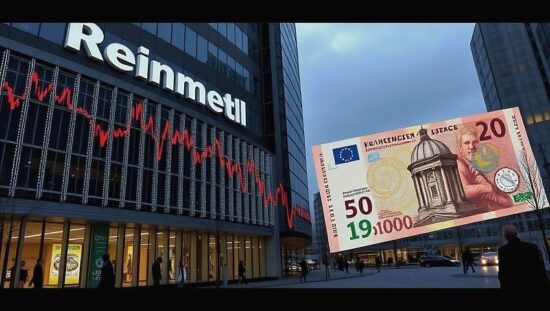Stock Market Index Slips, European Currency Weakens
The German Dax index closed lower on Tuesday, with a decline of 0.8 percent compared to the previous day’s close, at 23,988 points. The index started the day at a similar level to the previous day but then slipped into the red by midday, only to partially recover in the afternoon.
Market analyst Andreas Lipkow described the trading in German standard stocks as “impulsive-less” at the start of the week, with no new buying incentives coming from the US pre-market. He noted that the stocks of automakers and defensive sectors were performing well, with gains in the arms and financial and banking sectors being carried over into the broader market. However, Lipkow attributed the decline in the banking sector to the reduction of positions due to waning takeover fantasies in the sector.
Porsche and BASF shares led the list of gainers, while Rheinmetall’s shares closed at the bottom.
Meanwhile, the gas price fell, with a megawatt-hour of gas for delivery in July costing 35 euros, a two percent decrease from the previous day. This would translate to a minimum consumer price of around eight to ten cents per kilowatt-hour, including additional costs and taxes, if the price level were to remain stable.
In contrast, the oil price rose, with a barrel of Brent crude oil costing 67.81 US dollars at around 5 pm German time, a 1.2 percent increase from the previous day’s close.
The European common currency, the euro, weakened against the US dollar, with one euro equivalent to 1.1417 US dollars and one US dollar worth 0.8759 euros.





